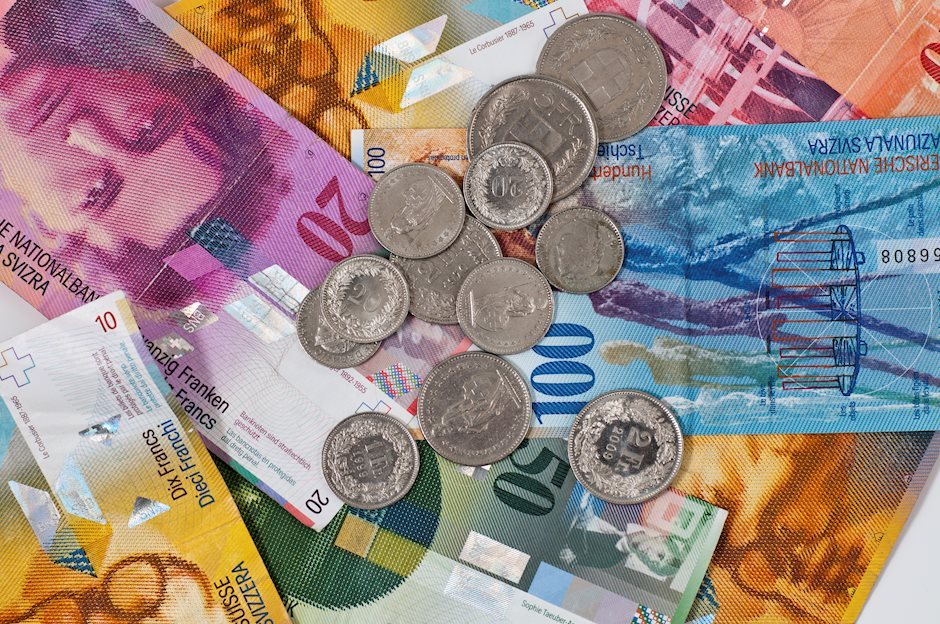USD/CHF extends downside below 0.8500 on softer US Dollar, dovish Fed
- USD/CHF trades in negative territory for the third consecutive day near 0.8460 in Thursday’s early European session.
- Weaker US economic data and dovish Fed weigh on the US Dollar.
- Softer inflation in Switzerland supports the case for another rate cut by the SNB.

The USD/CHF pair extends its decline around 0.8460 during the early European session on Thursday. The growing speculation that the US Federal Reserve (Fed) will cut a larger interest rate in September exerts some selling pressure on the US Dollar (USD). Investors will focus on the release of the US ISM Services Purchasing Managers Index (PMI), the ADP report on private-sector employment and weekly Initial Jobless Claims on Thursday ahead of the highly anticipated August Nonfarm Payrolls (NFP).
The recent weaker US economic data and the dovish stance of the Fed continue to undermine the Greenback broadly. The US Job Openings and Labor Turnover Survey showed that available positions declined to 7.67 million in July, compared with 7.91 million openings in June, the Labor Department revealed Wednesday. This report came in worse than the estimation of 8.1 million.
Meanwhile, Atlanta Fed President Raphael Bostic said on Wednesday that he is ready to start cutting interest rates even though inflation remains above the 2% target. San Francisco Fed President Mary Daly said early Thursday that the central bank needs to cut interest rates to keep the labor market healthy, but she needs more data, including Friday's job market report and CPI, to determine the size of a rate cut.
On the Swiss front, Swiss inflation slowed more than expected in August, prompting the expectation for another interest rate cut by the Swiss National Bank (SNB). Switzerland’s Consumer Price Index (CPI) rose 1.1% YoY in August, compared to the previous reading of 1.3%, below the market consensus of 1.2%. On a monthly basis, the CPI inflation remains unchanged in August from a decline of 0.2% in July, softer than the expectation of a 0.1% increase.
Swiss Franc FAQs
The Swiss Franc (CHF) is Switzerland’s official currency. It is among the top ten most traded currencies globally, reaching volumes that well exceed the size of the Swiss economy. Its value is determined by the broad market sentiment, the country’s economic health or action taken by the Swiss National Bank (SNB), among other factors. Between 2011 and 2015, the Swiss Franc was pegged to the Euro (EUR). The peg was abruptly removed, resulting in a more than 20% increase in the Franc’s value, causing a turmoil in markets. Even though the peg isn’t in force anymore, CHF fortunes tend to be highly correlated with the Euro ones due to the high dependency of the Swiss economy on the neighboring Eurozone.
The Swiss Franc (CHF) is considered a safe-haven asset, or a currency that investors tend to buy in times of market stress. This is due to the perceived status of Switzerland in the world: a stable economy, a strong export sector, big central bank reserves or a longstanding political stance towards neutrality in global conflicts make the country’s currency a good choice for investors fleeing from risks. Turbulent times are likely to strengthen CHF value against other currencies that are seen as more risky to invest in.
The Swiss National Bank (SNB) meets four times a year – once every quarter, less than other major central banks – to decide on monetary policy. The bank aims for an annual inflation rate of less than 2%. When inflation is above target or forecasted to be above target in the foreseeable future, the bank will attempt to tame price growth by raising its policy rate. Higher interest rates are generally positive for the Swiss Franc (CHF) as they lead to higher yields, making the country a more attractive place for investors. On the contrary, lower interest rates tend to weaken CHF.
Macroeconomic data releases in Switzerland are key to assessing the state of the economy and can impact the Swiss Franc’s (CHF) valuation. The Swiss economy is broadly stable, but any sudden change in economic growth, inflation, current account or the central bank’s currency reserves have the potential to trigger moves in CHF. Generally, high economic growth, low unemployment and high confidence are good for CHF. Conversely, if economic data points to weakening momentum, CHF is likely to depreciate.
As a small and open economy, Switzerland is heavily dependent on the health of the neighboring Eurozone economies. The broader European Union is Switzerland’s main economic partner and a key political ally, so macroeconomic and monetary policy stability in the Eurozone is essential for Switzerland and, thus, for the Swiss Franc (CHF). With such dependency, some models suggest that the correlation between the fortunes of the Euro (EUR) and the CHF is more than 90%, or close to perfect.
Author

Lallalit Srijandorn
FXStreet
Lallalit Srijandorn is a Parisian at heart. She has lived in France since 2019 and now becomes a digital entrepreneur based in Paris and Bangkok.

















